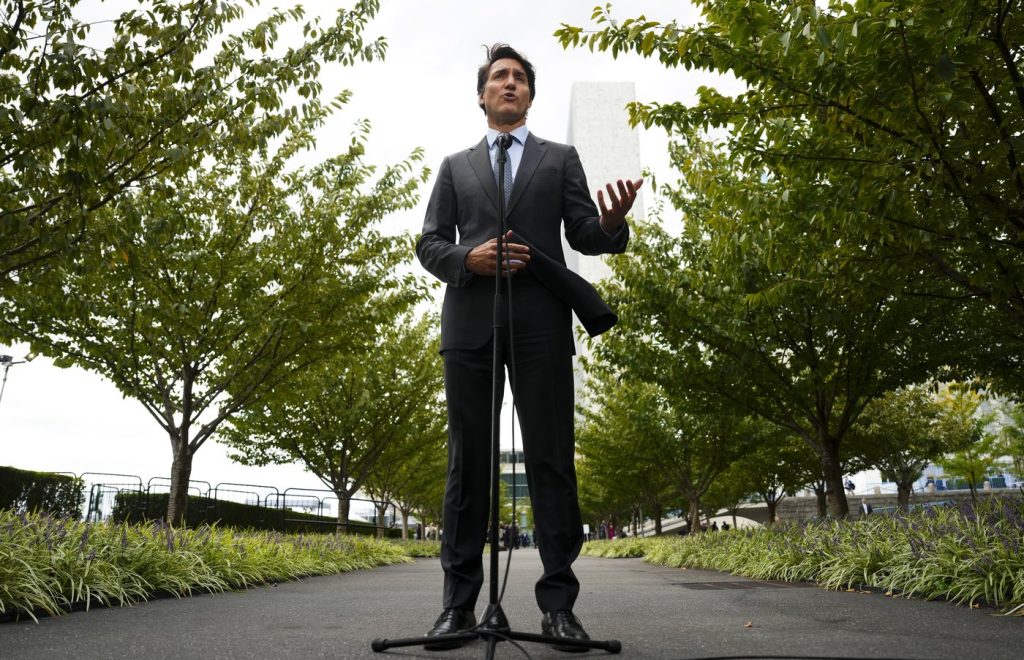updated
Conservative non-confidence motion defeated; government survives

Posted Sep 25, 2024 3:29 am.
Last Updated Sep 25, 2024 2:14 pm.
The Liberal minority government has survived a vote of non-confidence in the House of Commons by a count of 211-120.
Conservative Leader Pierre Poilievre put forward the motion asking MPs to declare they did not have confidence in the prime minister or his government.
Poilievre failed to get the support of other opposition parties to bring the government down.
The Bloc Québécois and the NDP voted against the motion.
If the non-confidence motion had passed it would have defeated the government and very likely triggered an immediate election campaign.
This is not the final test for the Liberals, though: the Tories intend to introduce another non-confidence motion as early as Thursday.
The Bloc is looking to capitalize on its new-found power to make gains for its voters in Quebec, who tend to be older. Protecting supply management is also a major priority for dairy farmers in Quebec.
If the Liberals do not pass a bill about old-age security and another supply management by the Oct. 29 deadline, Bloc Leader Yves-François Blanchet says his party will begin discussions with other opposition parties about toppling the government.
“What we are proposing is good for retired persons in Quebec, but also in Canada. It’s good for milk and eggs and poultry (producers) in Quebec, but also in Canada. So that’s good for everybody,” Blanchet said in a news conference Wednesday.
Blanchet says if the government agrees to its demands, the Liberals will avoid an election before Christmas.
However, he emphasized that his party will not blindly support the government’s agenda, even if the Liberals agree to the Bloc’s conditions.
“We will not ever support any motion or vote that would go against who we are — and who we are is well known,” Blanchet said, noting that his party will vote against motions and bills that the Bloc perceives to be against the interests of Quebec.
“So the government has to remain pretty careful.”
The Bloc has introduced two private member’s bills that the party is looking to pass. Bill C-319 seeks to increase old-age security payments by 10 per cent for seniors between the ages of 65 and 74 and raise the exemption of employment income used to determine guaranteed income supplement payments from $5,000 to $6,500.
The Liberals, who increased old-age security for seniors aged 75 and older in 2022, voted against the bill during second reading.
It is now under consideration at a House of Commons committee.
Bill C-282, if passed, would limit the government’s ability to make concessions on products protected by supply management during trade negotiations. The bill passed the House of Commons with support from the Liberals and is under consideration at a Senate committee.
Also on Wednesday, members of Parliament will vote on another confidence motion related to the Liberals’ proposed capital gains tax changes. That motion is expected to pass with support from the NDP.
Blanchet said people will have to wait to see how the Bloc will vote.
On Tuesday evening, Conservative Leader Pierre Poilievre detailed two more non-confidence motions he plans to put before the House.
One quotes other opposition leaders’ words of criticism for the prime minister and the Liberals in a bid to wedge them into taking down the government.
The other references housing costs, crime rates, centralized government and the impact of the carbon price on food costs.
The Conservatives can introduce either of those motions for debate on Thursday.
If any of the non-confidence motions were to pass, the government would be defeated and Canadians would very likely see an immediate election campaign.








